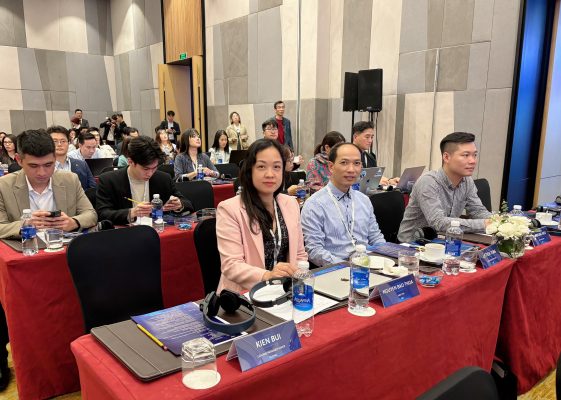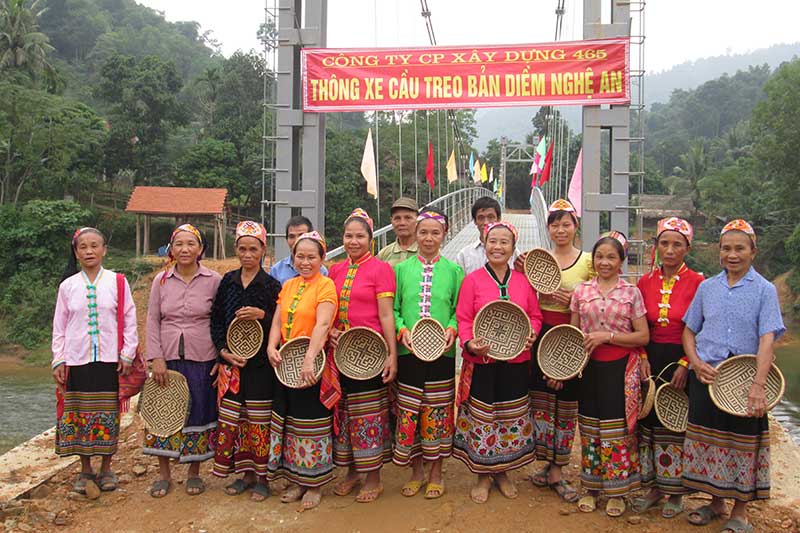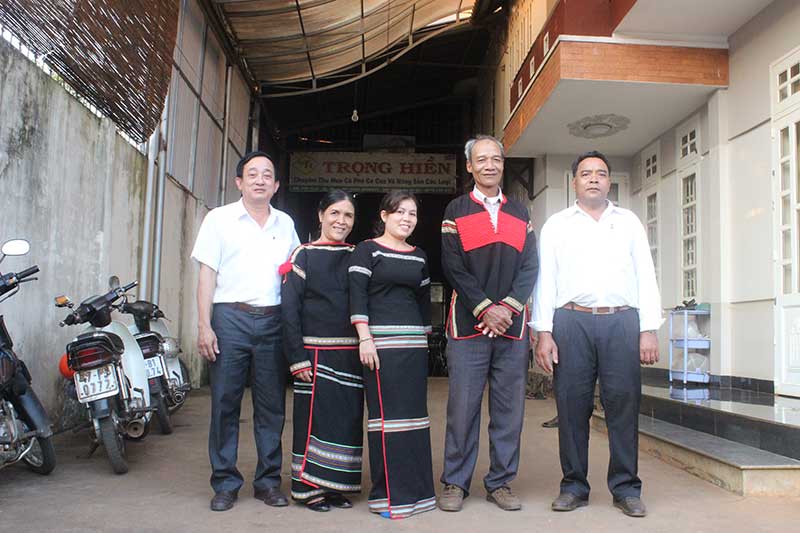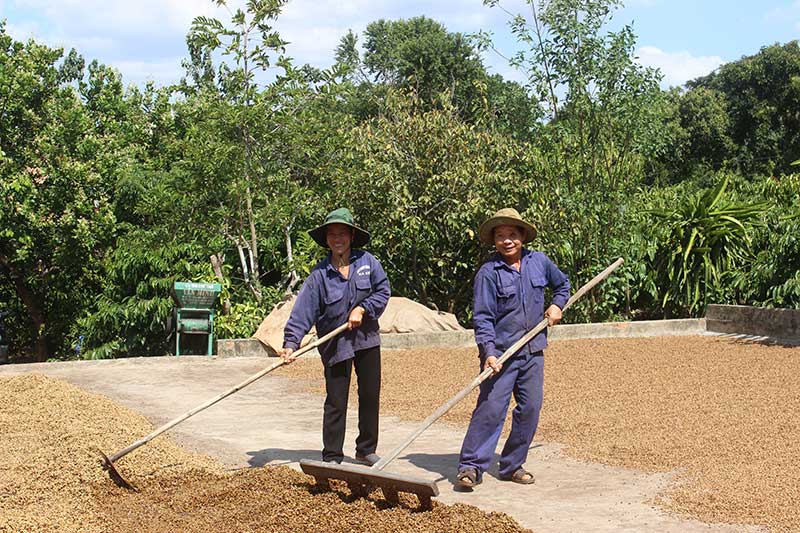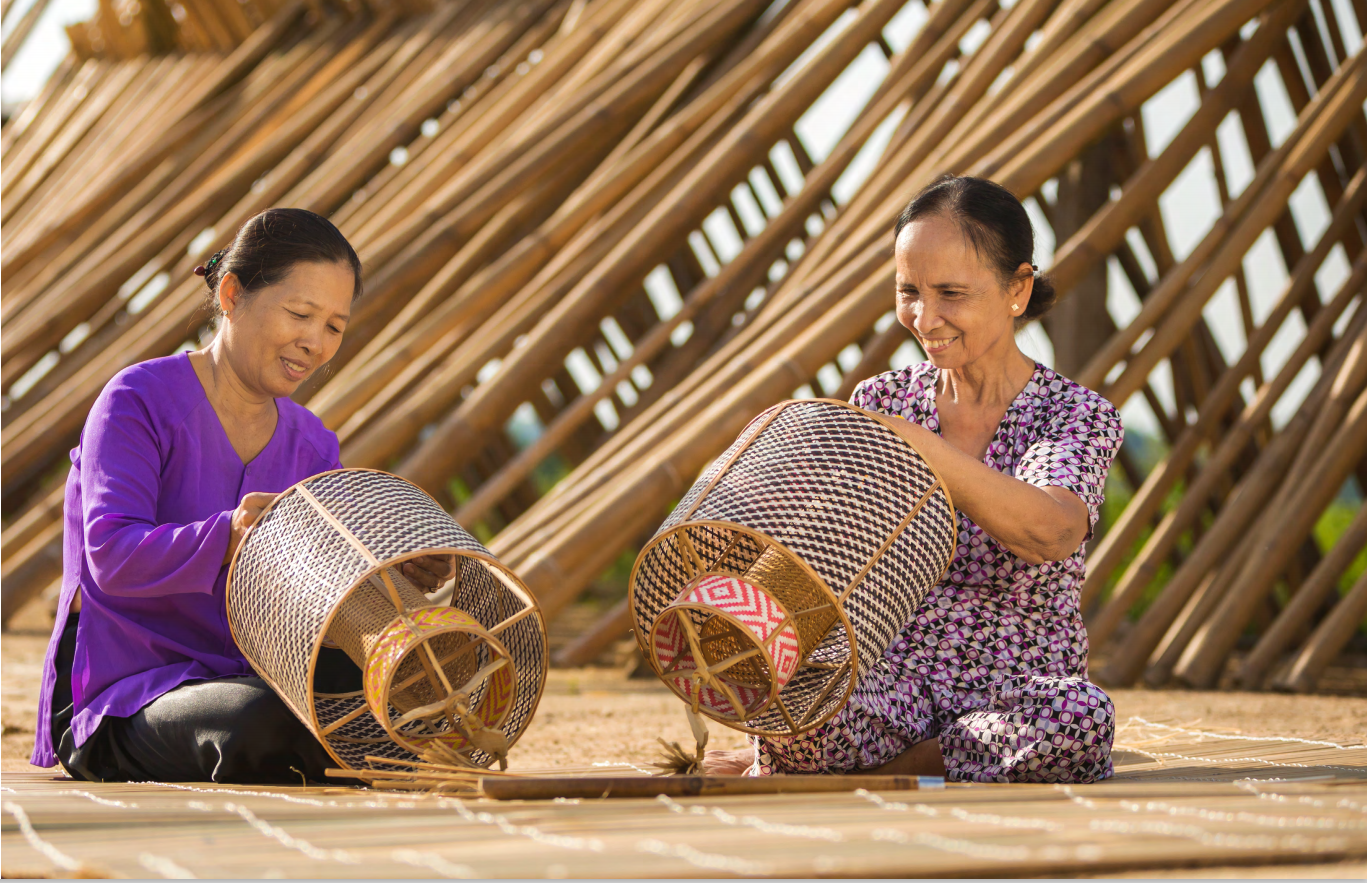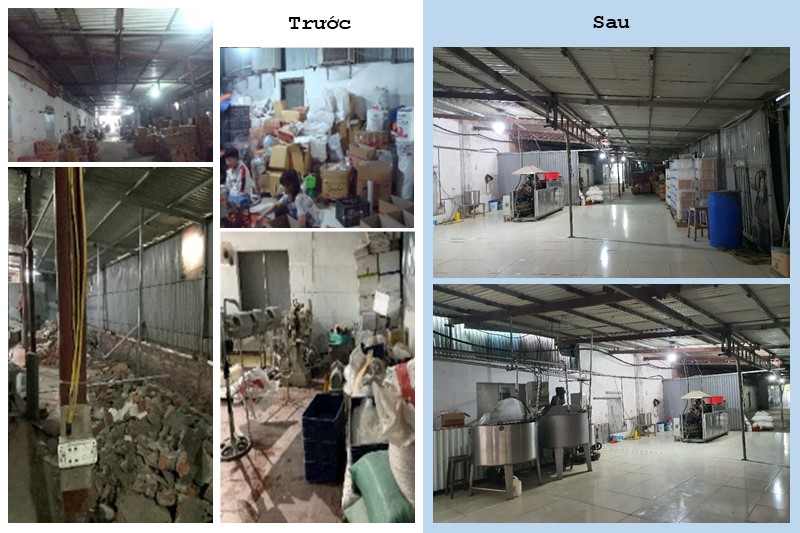The rejuvination of traditional craft production within the Co Tu ethnic group The Co Tu ethnic group is located in Doi Village, Thuong Lo Commune, Nam Dong District, Thua Thien Hue Province.

|
The rejuvination of traditional craft production within the Co Tu ethnic group The Co Tu ethnic group is located in Doi Village, Thuong Lo Commune, Nam Dong District, Thua Thien Hue Province. The sub-project has helped members of the cooperative to restore the traditional zeng and bamboo/rattan weaving of the Co Tu ethnic group. Sub-project: “Sustainable production and responsible consumption of medicinal plant and handicraft products for livelihood improvement, and reduced wildlife poaching for enhancing biodiversity conservation in Thua Thien Hue Province. Sponsored by USAID Green Annamites Project They have two main traditional occupations, beaded brocade weaving, and bamboo/rattan weaving. The clothing they make using their brocade patterns was traditionally worn by the Co Tu people. However, due to artificially cheap, mass-produced clothing and fabric items that have flooded the market in the modern day, the people had forsaken their traditional loincloths and flower dresses. With the discarding of traditional clothing there can come a slow erosion of traditional values. Thus, it is the central purpose of this cooperative to safeguard and encourage the production of these items of long-standing traditional lifestyles, and thereby to preserve and rejuvenate these ancient cultures who are so vital to the sustainability of the region. This is not only a matter of social concern, but also of environmental concern. These are the cultural values that are so important to bring back into general thinking. These people are a lifeline to a simpler way of living in the past, and to a more harmonious way of living in the future. They do not scrape the forest bare for a quick over-indulgent profit, but rather live in a way that is in tandem with the plants and animals, with a consciousness that they are all important parts of the biodiversity that maintains our miraculous ecological systems, and gives us life. With the goal of recovering the traditional occupations of the Co Tu people, and thereby to produce products that are sustainable and market-worthy, VIRI has had ongoing discussions with local authorities, especially the village elders and the senior members of individual households, in order to make an implementation plan for this objective. The sub-project has helped members of the cooperative to restore the traditional zeng and bamboo/rattan weaving of the Co Tu ethnic group. The bamboo/rattan weaving group has thirty members, with twenty-five male members and five female members. The zeng weaving and tailor brocade group has thirty members all of whom are female. The cooperative’s members are all very enthusiastic in participating in training courses to improve their skills and the standard of their products, as well as to develop new designs. Starting with merely thirteen members on the official cooperative license, after only one year of operation, the cooperative now has attracted a total of ninety local people who have become members. The Doi Village Community-based Tourism Cooperative has five groups, including the performance group (music, song, and dance), the culinary group, the agricultural group, the bamboo and rattan weaving group, and the zeng weaving group. At present, the cooperative’s revenue mainly comes from visitor tours. These are geared towards providing visitors with a unique experience including the enjoyment of local food, the witnessing of production methods, and the opportunity to purchase authentic cultural handicrafts. These activities have significantly improved the livelihoods of the local community, and also has boosted their everyday sense of contentment and general state of being. It has also provided them with a viable alternative to the exploitation of their natural forest resources in order to earn money to live, which would otherwise be their inevitable course.
|




